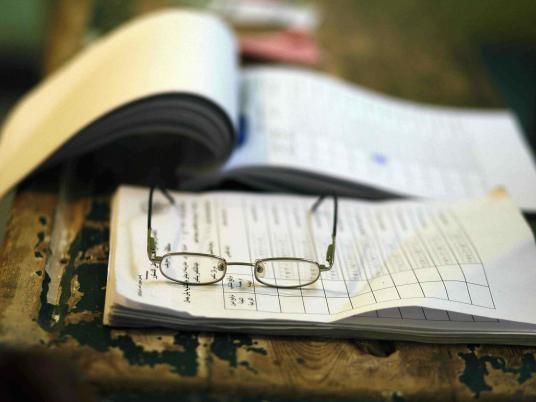The Anglo-Saxon reaction to Field Marshal Abdel-Fatah al-Sisi’s decision to run for president was conspicuously un-diverse. Most coverage, for example, unanimously introduced Sisi to uninformed readers as the general who toppled the “first democratically elected president” in Egyptian history, deliberately omitting the fact that at least 30 million people took to the streets in mass protests against said “democratic” leader, precisely because of his extremely autocratic rule.
Doubts on the Western Front
By-Dina Hamdy-egyptindependent
Opinion
00:04
Thursday ,17 April 2014

Another similar angle running through most coverage focuses on the monumental challenges facing the next Egyptian president. The most commonly listed challenges include “a bitterly divided nation, a crippled economy and a growing insurgency” as the BBC’s Orla Guerin puts it. A rather stranger question was asked by an “analyst of Egyptian politics”, Michael Hannah, in the Guardian: “"Will a President Sisi – with the backing of the military, and with what he would consider a popular mandate – then decide he can make decisions?" In addition, the Guardian’s choice of words to describe the insurgency of terrorism Egypt is currently facing as “dissent” is not only deliberately provocative, but downright misleading. I am not aware that terrorism and violence have ever been called “dissent” in the “Free World”.
The “restructuring of the military” was another topic discussed, mainly in some American articles. Depending on who you believe, for example, the decision to name Ahmed Wasfi, former commander of the Second Field Army, as the new director of training, was alternatively seen as an attempt to marginalise him, because he is a “charismatic and outspoken officer who had shown the potential to develop his own popular following” (New York Times) or as a move “to give Wasfi a more central role,” so as to consolidate the position of Sisi’s “men” in the “New SCAF” (Washington Institute for Near East Policy).
A deeper look at the coverage of recent events in Egypt, however, reveals serious anxiety and lack of a clear vision of where Egypt is heading. This is best summed up by Dr. Michele Dunne, senior associate in Carnegie Endownment’s Middle East Program, in her article entitled “Five Questions for Sisi, Egypt’s Man of Mystery.” Like most of the coverage on the presidential elections, Dunne laments the fact that Sisi will not face serious competition due to the lack of an Islamist candidate. Needless to say, I don’t feel Egypt’s political life will terribly suffer because of that. In addition, Dunne argues that Egyptians don’t know “where Sisi stands on a number of key issues or what he plans to do in office”. Dunne mentions economic crisis, deteriorating security, lack of political pluralism, and human rights abuses as examples of the critical issues facing Sisi if he’s elected president. She poses five questions the presidential candidate should clarify in the coming campaign, although Dunne doubts there will be a serious debate during the run-up to the elections. The questions are over the possibility of reconciliation and “national healing” of the “unparalleled internal conflict and polarization” plaguing Egypt; inclusion of “harassed” young activists, journalists and MB supporters who feel marginalised since July 2013; a commitment to human rights and political pluralism; and finally what is Sisi’s vision of the role of the public sector and the military in the economy as opposed to that of the private sector.
What Dunne’s questions reveal is a deep-seated doubt by most analysts that the next presidential candidate, and specifically Sisi, will be able to handle Egypt’s almost insurmountable problems. There’s almost a gleeful prediction that Sisi is setting himself up for failure, and that people will turn against him if or when he does. Yet few analysts seem to realize that a large majority of Egyptians, especially the have-nots, couldn’t care less about political pluralism, human rights or a reconciliation. Yes, these are legitimate concerns that cast a shadow over the current turbulent period of Egypt’s history. Yes human rights abuses are critically important, along with the future of the nascent political parties and how they will fare in the next parliamentary elections. Yes reconciliation is a legitimate question to ask.
All these issues, however, aren’t a main concern of a large majority of Egyptians. What is of paramount importance now seems to be issues of survival. There’s a joke going viral on Facebook that quotes an imaginary “man on the street” as saying, “I don’t care about the liberal current or the Islamist current, I just want an electrical current,” referring to the power failures that have become a feature of Egyptian life.
As for reconciliation with the Muslim Brotherhood, I would venture to argue that again it is not on the agenda of a large majority of people in Egypt, who have now come to hate the MB with a venom, and as long as the bloodshed is ongoing, will not be in a mood to accept it. What is guaranteed to be on their agenda is how to make ends meet, how to put food on the table, and whether Sisi can make the streets safe again. It is these questions that Sisi will have to urgently answer very soon, and it is these issues that will determine whether he remains in power if he’s elected. In my opinion, he doesn’t have the luxury of running a presidential campaign. His electoral programme should be how to tackle these stark and desperate needs, the need for food, security and justice. Those who support him believe he’s the savior, the one capable of steering Egypt away from the precipice. This then is his programme, his vision and his strategy.


